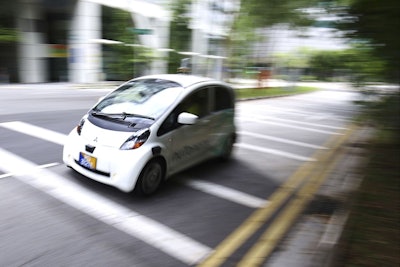
Bolstered by widespread adoption in India and China, the number of electric vehicles in the world grew to 2 million in 2016, according to the independent sustainability watchdog International Energy Agency (IEA).
But Ars Technica’s write up of IEA’s findings notes growth in the sector is slowing. The number of electric cars on the road was less in 2015 than it was in 2016, with growth dropping from 77 percent to 60 percent in that timeframe. And electric cars still make up only 0.2 percent of all vehicles in the world.
Clean energy advocates tout electric vehicles (EVs) as a good way to reach the 2 degrees Celsius global temperature cap described in the Paris Agreement. In order to make this work, countries such as Denmark and the Netherlands and states like California have introduced incentives to bring down the cost of electric vehicles, whether through purchase rebates or tax exceptions. However, the industry still doesn’t have enough traction to encourage more people to buy EVs without the incentives.
 (AP Photo)
(AP Photo)Part of that is an issue of the economy of scale. Batteries, which make up a significant part of the production cost, could go down in price if they’re produced in larger batches. Tesla’s Gigafactory is leading the way with examples of battery production, with companies like Daimler also working on factories dedicated to lithium-ion batteries.
Sales of electric cars also go up when gas prices are high and come down when gas prices are low (hence the patterns of Prius sales!)
The IEA report also showed that China is strongly competitive with the United States in terms of the global electric car stock. In 2016, China gained about a third of the global total, surpassing the U.S., the previous global leader. Chinese drivers use over 300 electric buses, 3 to 4 million low-speed electric vehicles (think smart cars or golf carts), and more than 200 million electric two-wheelers. China accounts for more than 40 percent of the electric cars sold in the world, the report said, twice the number sold in the United States.
Norway has lead the pack in terms of overall deployment of electric vehicles in the country, with a 29 percent market share. Netherlands and Sweden trail at 6.4 percent and 3.4 percent, respectively.
The report predicts that the global number will grow despite varying adoption rates and government support. Worldwide electric car population will be between 40 million and 70 million by 2025, signaling a rapid ascent, the report predicts.
The complete report, including details about power generation and storage at the grid level, can be viewed here (PDF).






















